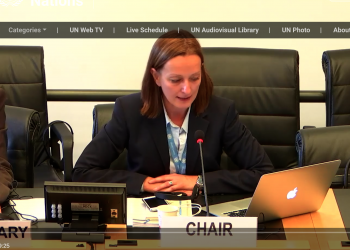UN committee calls on Qatar to end discrimination against the Baha’i community
A United Nations committee has expressed “concern” at the State of Qatar’s discrimination against Baha’is in the country and has recommended the government “remove all obstacles” blocking the economic, social and cultural rights of Qatar’s Baha’i community.
The Committee on Economic, Social and Cultural Rights, which conducted a review of Qatar’s human rights record earlier this month, leading to its findings or “concluding observations,” noted in a statement that the Baha’i community in Qatar “was not recognized and denied registration” by the authorities.
Requiring minorities to be registered and then denying this registration to the community exposes its members to the risk of deportation, the Committee said. A growing number of Baha’is have been deported in Qatar in recent years—in many cases separating families for prolonged periods of time. Dozens of others have been blacklisted.
“Members of the Baha’i minority had been subjected to administrative deportation and blacklisting, resulting in loss of employment and familial separation,” the Committee added.
Baha’is in Qatar are also denied “certificates of good conduct” by the government which bars them from changing jobs or working in key sectors. Denying Baha’is these certificates imply they have committed some legal offense although no proof of such charges has ever been presented.
“We are grateful that the UN’s Committee on Economic, Social and Cultural rights have used its important platform to highlight the ongoing discrimination faced by Baha’is in Qatar,” said Saba Haddad, Representative of the Bahá’í International Community (BIC) to the United Nations in Geneva. “The acknowledgement and attention of the international community stands in stark contrast to the obfuscation, denials and disregard of the Qatari government over many years. Baha’is have lived in Qatar for generations—since before its independence—and are embedded in its society.”
“Qatar’s government must heed these recommendations and concern and acknowledge the discrimination Baha’is have faced over many decades, grant the community the full enjoyment of its human rights, allow deported Baha’is to return home, and end its discriminatory policies,” Ms. Haddad said. “Baha’is in Qatar have just one wish; to live with their families, community and their friends and associates across Qatar, and to contribute to the society they call home.”
The Committee on Economic, Social and Cultural Rights 2023 review on Qatar was the first time the UN body had warned of human rights violations affecting minorities in the country.
